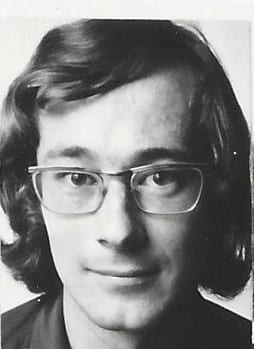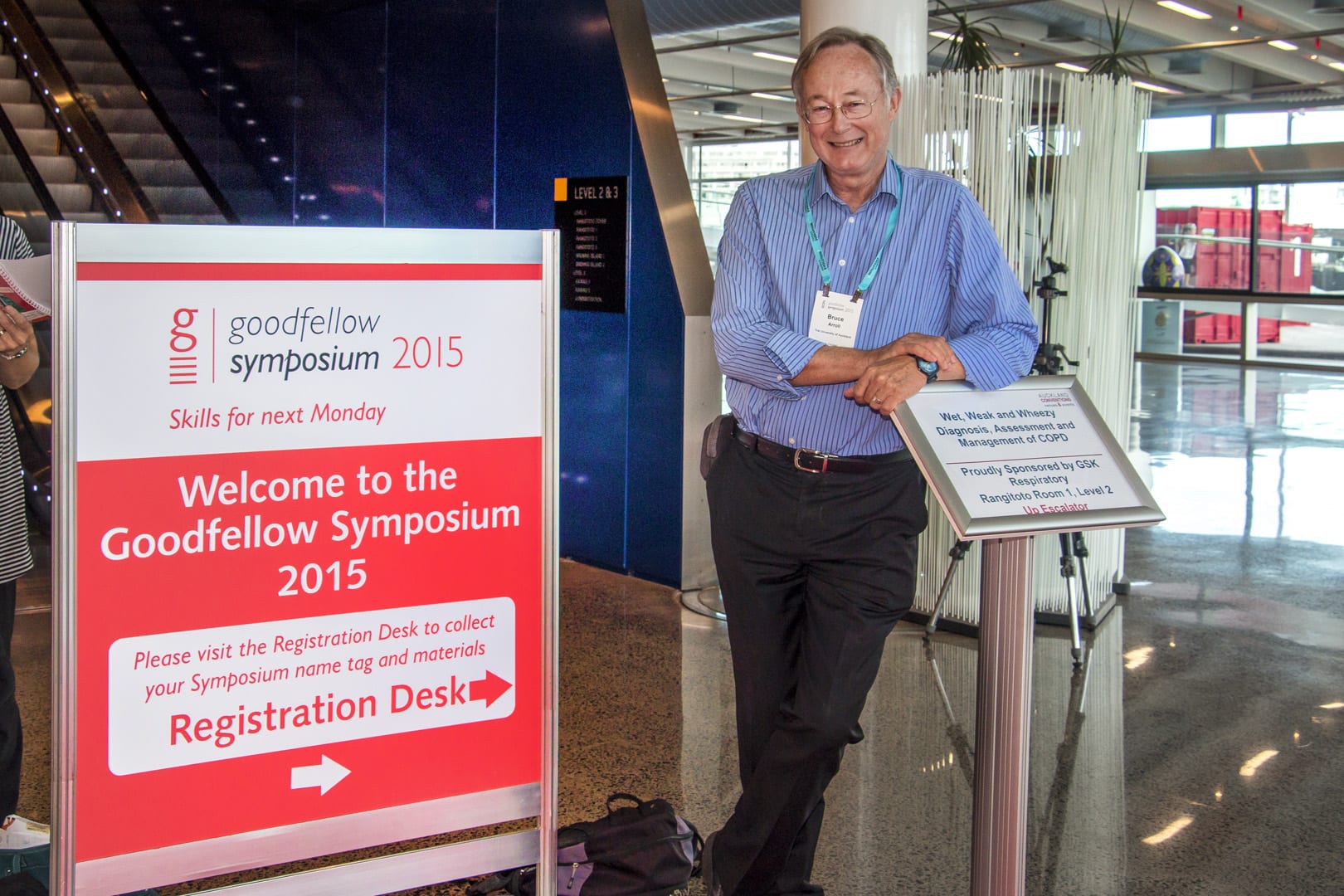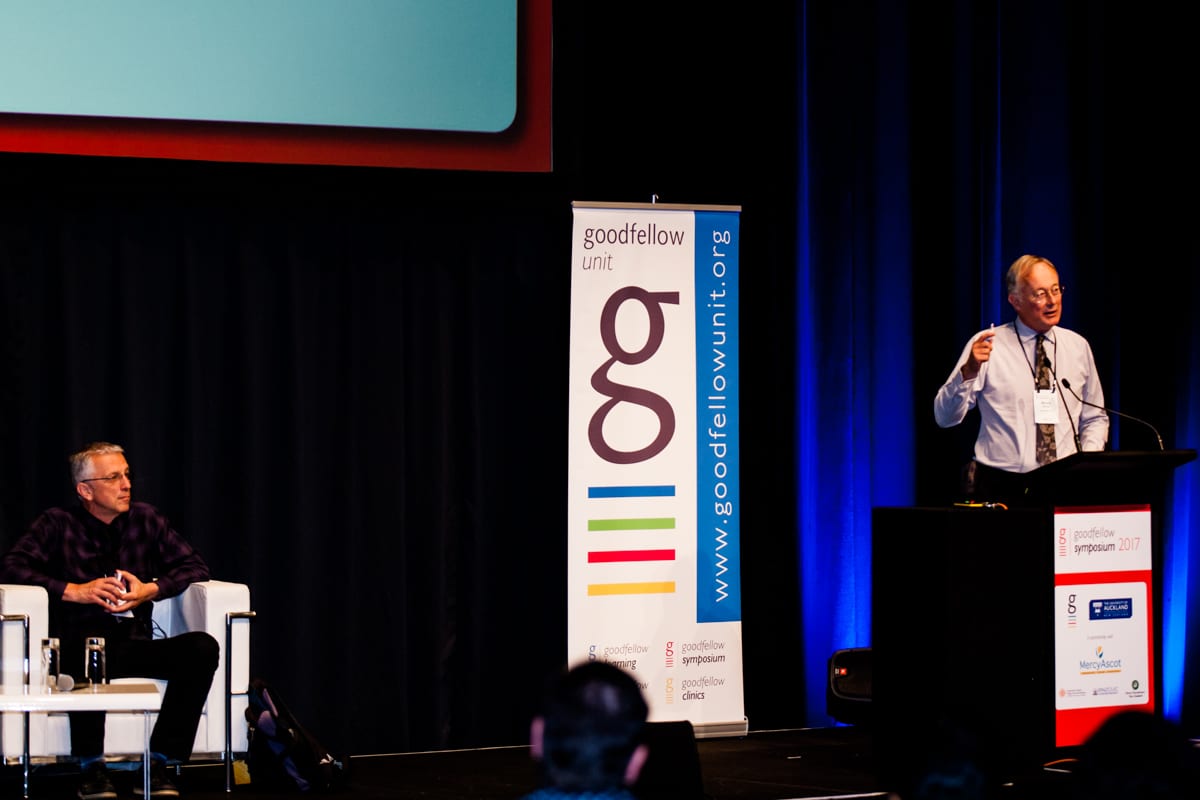
Bruce Arroll pictured as a
Dr Bruce Arroll became the Director of the Goodfellow Unit in March 2014 following Dr Peter Huggard. Bruce initially planned to become an engineer after his high school principal advised him against undertaking a medical degree. He enrolled in a Bachelor of Engineering at the University of Auckland but transferred to medical school two years later in 1973.
Bruce became interested in medical education as an undergraduate student and served on the Medical Education Committee. In 1981, he accepted an offer to join the family medicine programme at McMaster University in Canada, whereby ‘evidence-based learning’ was starting to be applied. He recalled,
We were taught how to read a medical journal article, which I wasn’t taught at medical school. When I came through, the senior – man usually, but occasionally a woman – would be right. Their opinion was right and no matter how much you knew you would always have to defer to them. And with evidence-based medicine you learned how to critique papers and you could know more about a topic than the boss, literally. It was very liberating in that sense.
After returning to New Zealand in 1987, Bruce undertook a PhD in the Department of Community Health, supervised by Professor Robert Beaglehole. He joined the Department of General Practice as a Senior Lecturer in 1991 and shared offices with Rose Lightfoot and other staff from the Goodfellow Unit, ‘so we were always rubbing shoulders with each other’.
He also

Professor Arroll became the Director of the Goodfellow Unit in 2014, after having served as Head of the Department of General Practice. Professors Felicity Goodyear-Smith and Ngaire Kearse, who had been appointed as the Head of School of Population Health, approached Bruce to accept the position. While he ‘was curious’ about the position, he did not ‘didn’t leap at the idea to start with, because I guess I was still at the point of developing my academic career’. Yet he also saw the position as an opportunity to ‘put the evidence into practice’. He explained the ‘problem with academia is that we’re developing all this information, but no one is doing anything about it. So, let’s maybe start to implement some of the stuff and get the information out there in a way that people can digest’.1 The idea of communicating new research to GPs in ways that they can apply almost immediately aligned with Douglas Goodfellow’s hopes when he founded the Unit in the late-1970s. Bruce decided to accept the position.
Under Bruce Arroll’s direction, the Goodfellow Unit has developed podcasts, webinars, fortnightly Goodfellow Gems which feature medical updates for GPs, and Red Whale, a single day course developed by the UK organisation Primary Care International that offers medical updates to primary health care providers onsite and online.
Bruce Arroll on Red Whale
Bruce Arroll on the Goodfellow Unit
Bruce Arroll has been especially involved in redesigning the Goodfellow Unit Symposiums to shift the focus away from research and towards information of immediate relevance to GPs with the theme ‘Skills for Monday’. Felicity Goodyear-Smith explained that he has ‘really taken the Goodfellow Unit to new heights with the Symposium, the webinars, and the podcasts. It’s always been a high-quality Unit in terms of the products it’s produced, but Bruce has made it particularly good.’


Bruce Arroll at the Goodfellow Symposiums in 2015 and 2017
Bruce reflected on the Goodfellow Unit as one that ‘makes better primary care clinicians … which is what Douglas Goodfellow wanted’. Their engagement with technological developments including podcasts and webinars now means ‘you don’t have to go on a Tuesday night to the medical school anymore, you can be sitting at home with a glass of wine watching the kids run around and looking at a webinar, there are just all sorts of ways of getting this information’.2
